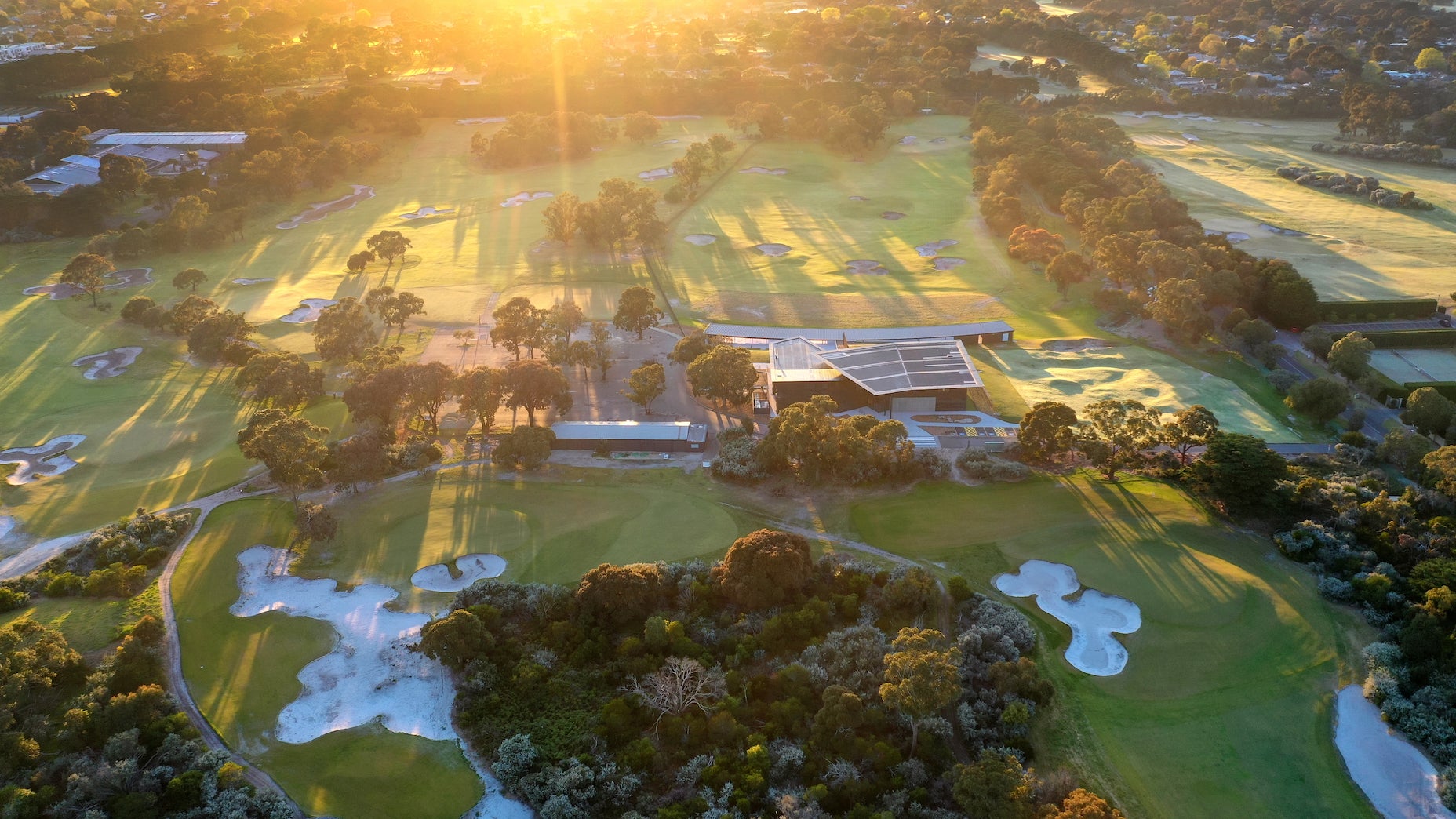
The new Sandy Golf Links is the envy of any municipally-owned course.
Gary Lisbon
Imagine if Gil Hanse reworked Augusta Municipal Golf Course, the city-owned track near the home of the Masters, and Augusta National paid for it — and agreed to do the maintenance, too.
Or if Tom Doak touched up Pacific Grove Golf Links, the seaside muni just north of Monterey, and Cypress Point assumed its care.
Nothing of the sort would ever happen, right? And yet it has, half a world away.
For the details, we turn our gaze Down Under to the Melbourne Sandbelt and a course called Sandy Golf Links, formerly known as Sandringham.
Sandy boasts a solid pedigree. It also occupies a prime location. Originally designed by Vern Morcom, a looming figure in the region (Morcom’s father, Mick, was the lead builder on much of Alister Mackenzie’s Sandbelt work, and Vern himself was the head greenskeeper at Kingston Heath for more than 40 years), the course butts up against revered Royal Melbourne (No. 7 in our latest ranking of Top 100 Courses).
But where Royal Melbourne is reserved for members and their guests, Sandy Links is what we Americans would call a muni. Never mind that Australians don’t use that term. Sandy fits the bill. The place is city-owned. Anyone can play it.
For years, the course they played had the pleasant but tired trappings of so many munis: a layout with sound bones in an aging body.
You’d never know that from its looks today.

Sandringham at sunset.
Gary Lisbon
The early murmurings of change began in 2010, when Royal Melbourne took over the lease. The 2011 Presidents Cup was approaching, and for various reasons, including parking and practice facilities, it made sense for the club to have some control over the property next door. The lease was for a year, but when that year expired, Royal Melbourne re-upped. The year after that, the club signed on again.
By then, other developments were afoot. Golf Australia, the game’s national body, was searching for a new home in the region, an administrative center that would double as a high-tech training facility: a grooming grounds for tomorrow’s stars.
In 2016, the course still known as Sandringham was chosen as the site.
A dramatic overhaul was required.
Fast forward to the present. The Australian Golf Center is now finished, its final touches wrapped up this past fall, complete with covered hitting bays, nifty short-game grounds, a double-ended driving range and other offerings befitting Australia’s best young amateurs and pros.
But for everyday golfers, the most important change is to the course itself.
Reimagined by Mike Cocking, a design partner in OCM Golf, the architectural firm co-founded by Geoff Ogilvy, the course rebranded as Sandy Golf Links provides a true Sandbelt experience for the masses — with the backing of the Sandbelt’s most prestigious private club.
Royal Melbourne, which put its resources to work in the construction, also handles the maintenance, bringing out the shine in Cocking’s fine design.
To make room for the expanded practice grounds, Cocking had to lose holes 1 and 9 from the original layout. Necessity being the mother of invention, he then got creative to find a new 18 within a reduced footprint.
The result is a par-65 routing that tips out at a modest 5,400 yards but makes up for in artistry what it lacks in length. Fairways are broad-shouldered but angles are essential. Every tee, green and bunker has been rebuilt and repositioned, in a style consistent with Sandy’s more famous neighbor. Even the mowing patterns mimic those next door.

The Australian Golf Center is now finished, and Sandy Golf Links extends around.
Gary Lisbon
Adding to the kinship, Sandy’s greens feature ‘Sutton’s blend,’ the same grass type that is otherwise used exclusively next door. The aim is to approximate the fabled putting surfaces at Royal Melbourne, right down to the satisfying wooden sound you get if you let a putter drop on the green.
In Sandy’s new sporty form, there are no par 5s, but that, too, squares with the spirit of golf in the Sandbelt, where world-beating short par-3s and 4s abound. On turf kept firm and fast by the Royal Melbourne team, a crafty ground game goes a long way here. It doesn’t hurt to be a bomber. Never does. But this is egalitarian golf, manageable in scale for newbies even as it tests more seasoned sticks with its demands around the greens.
And boy, does it cut a handsome profile.
Check out the photos. The clean-edge bunkers, guarding targets shaped out of rollicking terrain. You might think that you were looking at Royal Melbourne’s more compact cousin.
It’s a dream arrangement and one without an obvious parallel. But this country is home to a lot of worthy munis, standing in the shadow of big-time private courses.
Looking at the photos and thinking about your local muni, you could be forgiven for letting yourself daydream.








